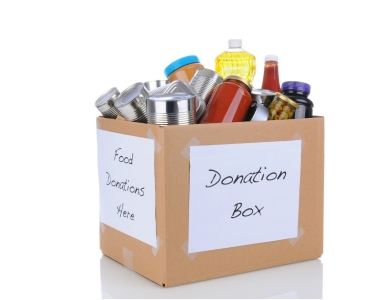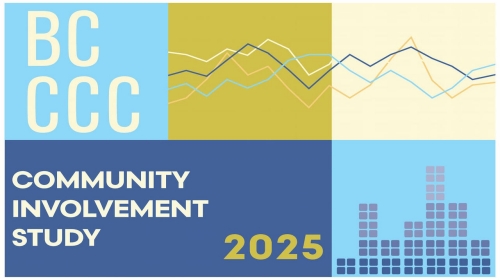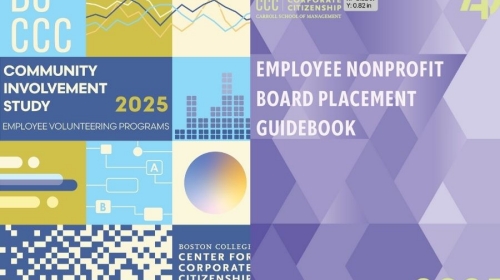WEBINAR: This webinar explores how to measure and communicate your organization's social impact with proven frameworks and strategies that matter to stakeholders.
Supporting food security during COVID-19

While COVID-19 continues to put pressure on our health care systems across the globe, we are all thankful that children seem to be spared from the worst symptoms of the virus. Many, however, aren’t immune from its subsequent effects—especially the threat of hunger.
According to the National Center for Children in Poverty, nearly half of all children in the United States (43%) live with low-income families at or below the poverty line. As schools, day-care programs, and other public institutions close to slow the spread of the virus, millions of children are in danger of losing their access to free or low-cost meals. Meanwhile, food security for the elderly and those with underlying conditions is becoming increasingly difficult as well.
What can be done? The Federal Government has taken the first step by working to pass H.R. 6201, the FAMILIES FIRST CORONAVIRUS RESPONSE ACT. This legislation—which at the publication of this blog has passed the House and is now in the Senate—would include funding to support food assistance programs, providing $500 million to WIC (The Special Supplemental Nutrition Program for Women Infants and Children), and $400 million to support local food banks.
If passed, this would be a tremendous step toward protecting our most vulnerable, however business and individuals will also need to step up to aid to nonprofit organizations stretched beyond capacity. Here are some starting points for CSR practitioners:
- Reach out to existing partners or local nutrition and hunger nonprofits to find out how your company can help—they are best positioned to prioritize the needs of those they serve.
- Once needs are confirmed, communicate to employees what is needed—in some states, food banks are actually receiving fewer donations than normal as panicked residents hoard supplies—and organize collections and drop offs that still meet the demands of social distancing.
- Offer a focused employee giving program—if possible with a company match—that supports food assistance programs.
- Feeding America, the nation’s largest domestic hunger-relief organization, has created a COVID-19 Response Fund to help food banks across the country as they support communities impacted by the pandemic. This organization partners with a number of Center members including Bank of America, General Mills, Morgan Stanley, Nestle, Nielsen, Target, TJX, and Wells Fargo, and serves a network of 200 member food banks across the country.
- Meals on Wheels is also seeking donations while updating its practices to ensure that its volunteers and the seniors they serve are safe. This organization partners with Center Members such as Ameriprise, Banfield Pet Hospital, and Subaru, and is sometimes the only food option for the populations most vulnerable to COVID-19.
Of course, companies can also consider donating time and resources, as well as funds directly. The Walt Disney Company, for example, is donating food from its Disneyland parks to the Second Harvest Food Bank of Orange County while the parks are closed. Major League Baseball—along with the Major League Baseball Players Association—is donating $1 million to help fight hunger as a result of school closures and quarantines stemming from the COVID-19 pandemic.
COVID-19 will throw unexpected challenges that you—as corporate citizenship professionals—are uniquely prepared to meet. You are adept at identifying and prioritizing the needs of your communities and other stakeholders, and determining where their needs and your companies resources align to deliver the most positive results. And of course—we’re here to help. Please make use of our thousands of knowledge products, the tools and research we’re emailing to you directly, and our digital networks to as you navigate the complexity presented by this pandemic. If you need even more support, don’t hesitate to reach out. Remember, members have access to our Knowledge Request service, which provides individualized responses to address your specific needs. We’ll get through this together.
Related Content
RESEARCH BRIEF - Researchers investigated how ESG activities help or hurt financial performance, using nine years of data from over 1,200 global companies.
RESEARCH BRIEF - Researchers analyzed 4 US energy exchange-traded funds (ETFs) over 15 years, including 2 dirty energy funds tracking fossil fuel companies and 2 clean energy funds tracking renewable energy companies.
RESEARCH BRIEF - Researchers conducted a survey, which measured perceptions of CSR and ethical leadership within the manufacturing and service industries.
WEBINAR: This webinar explores how corporate giving will be reshaped by the One Big Beautiful Bill. Hear directly from corporate citizenship leaders as they share innovative, real-world strategies that deliver impact for communities and results for business.
This study explores shifting trends in employee volunteering, corporate giving, and other means of corporate community involvement.
This guidebook offers insights on placing employees in nonprofit board service roles.
This study explores shifting trends in employee volunteering, corporate giving, and other means of corporate community involvement.








